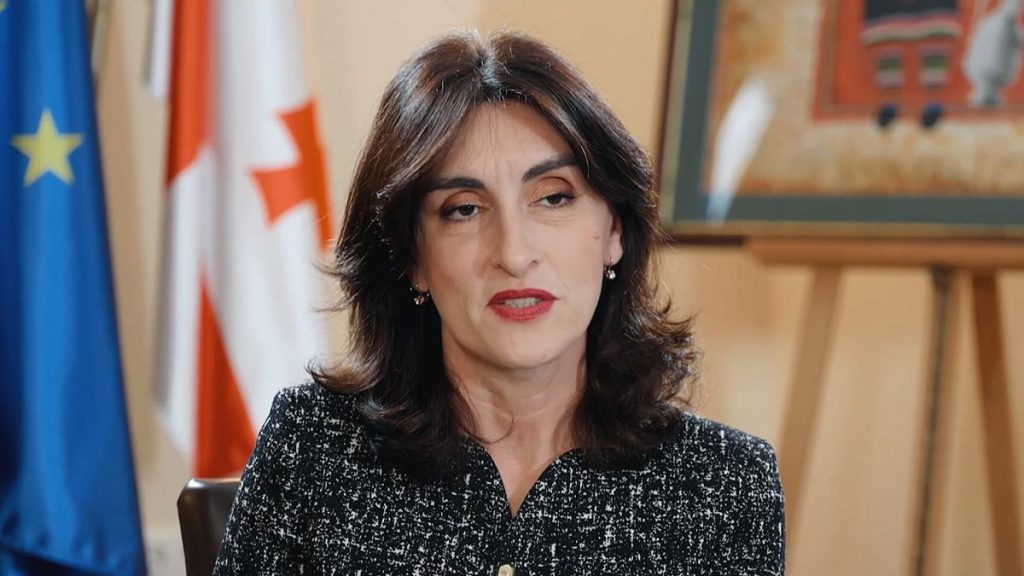Georgia’s recent political landscape has been marked by significant upheaval, primarily stemming from the Georgian Dream party’s decision to postpone the country’s European Union integration process until 2028. This move sparked widespread pro-EU protests, which were met with a police crackdown, raising concerns about the government’s commitment to democratic principles and its alignment with European values. The government’s justification for the crackdown centered on the presence of violent elements within the protests, alleging that these groups specifically targeted police forces, thus requiring a forceful response. This narrative has become a central point of contention in the ongoing debate about Georgia’s political trajectory.
The pro-EU demonstrations erupted in response to the Georgian Dream party’s decision to effectively shelve Georgia’s EU membership aspirations, a move that contradicted the widespread public support for closer ties with Europe. The timing was particularly sensitive, given that Georgia had formally applied for EU membership in March 2022, following Russia’s invasion of Ukraine, and was granted candidate status in December of the following year. This decision was met with jubilation in Tbilisi, underscoring the popular desire for deeper integration with the EU. The Georgian Dream party’s subsequent postponement of the integration process therefore came as a shock and triggered widespread dissatisfaction, culminating in the mass protests.
The European Council’s decision to pause Georgia’s accession process was primarily driven by concerns over the country’s controversial foreign influence law, which critics have likened to similar legislation in Russia. This law, while defended by the Georgian government as a transparency measure, has been interpreted by many as a step away from democratic norms and towards authoritarian practices. The controversy surrounding this law, coupled with the government’s response to the protests, has fueled speculation about Georgia’s geopolitical orientation and its commitment to the EU integration path.
In an exclusive interview with Euronews, Georgian Foreign Minister Maka Botchorishvili addressed these concerns, defending the government’s actions and rejecting accusations of a pro-Russian tilt. She questioned the characterization of the protests as entirely peaceful, highlighting the alleged presence of violent actors who targeted police forces. This justification for the police crackdown forms a key element of the government’s narrative, portraying the response as necessary to maintain order in the face of targeted aggression. However, this narrative has been contested by opposition groups and international observers, who have raised concerns about the proportionality of the police response and the potential for suppression of dissent.
Botchorishvili vehemently denied any shift towards Moscow, emphasizing the Georgian Dream party’s long-standing commitment to European integration. She pointed to the signing of the Association Agreement with the EU in 2014 as evidence of this commitment, highlighting the deepening of economic and political ties that have resulted from this agreement. Furthermore, she underscored Georgia’s unwavering support for Ukraine, framing these actions as demonstrable proof of the country’s alignment with European values and its opposition to Russian aggression. This defense serves to counter accusations of pro-Russian leanings and reinforces the government’s narrative of continued commitment to the European path.
However, the government’s actions and rhetoric haven’t entirely dispelled concerns about Georgia’s trajectory. The postponement of EU integration, the controversial foreign influence law, and the crackdown on protests have created a complex and uncertain political landscape. The competing narratives surrounding these events highlight the deep divisions within Georgian society and the challenges facing the country’s future relationship with the EU. The government’s insistence on its commitment to European integration is juxtaposed against actions that appear to contradict this commitment, leaving a lingering question mark over Georgia’s geopolitical direction. The ongoing debate and the potential for further protests underscore the fragility of the current political situation and the need for careful navigation to ensure that Georgia remains on a path towards democratic consolidation and closer ties with Europe.

